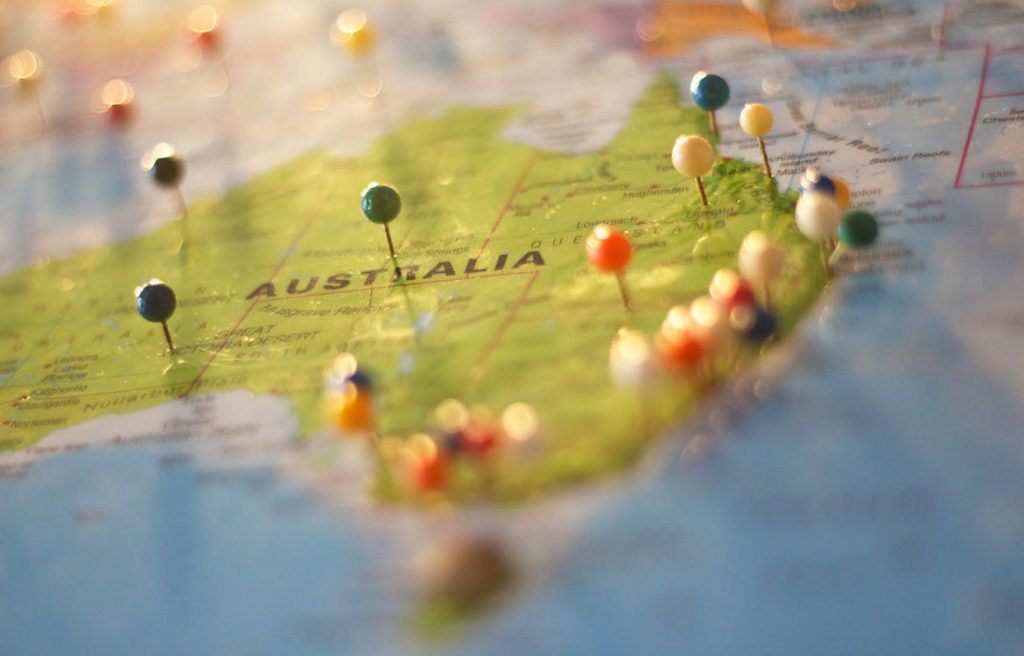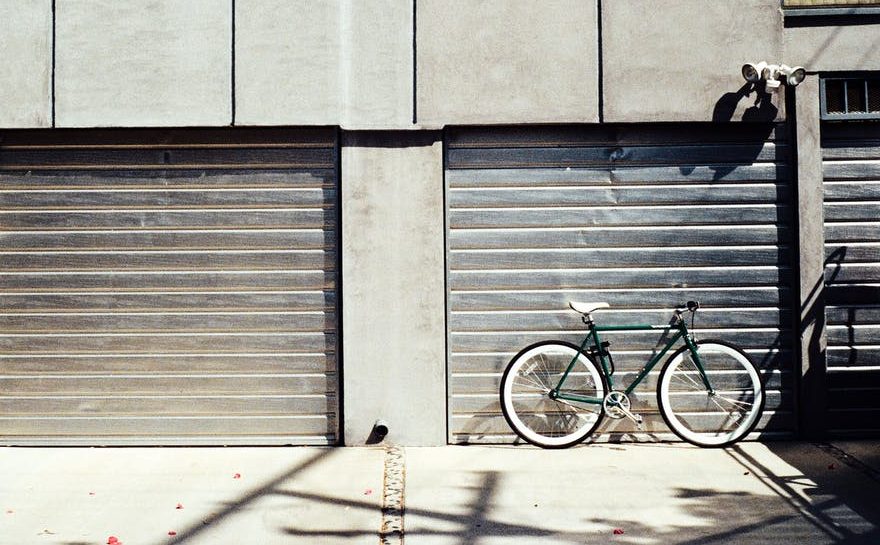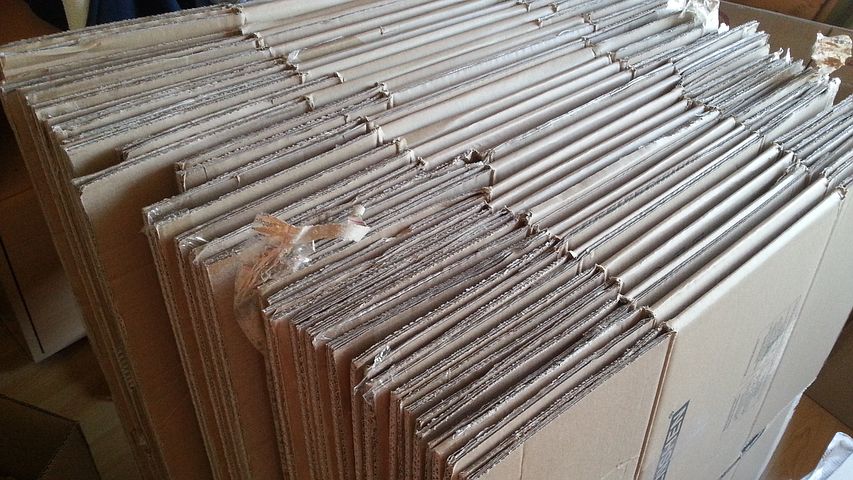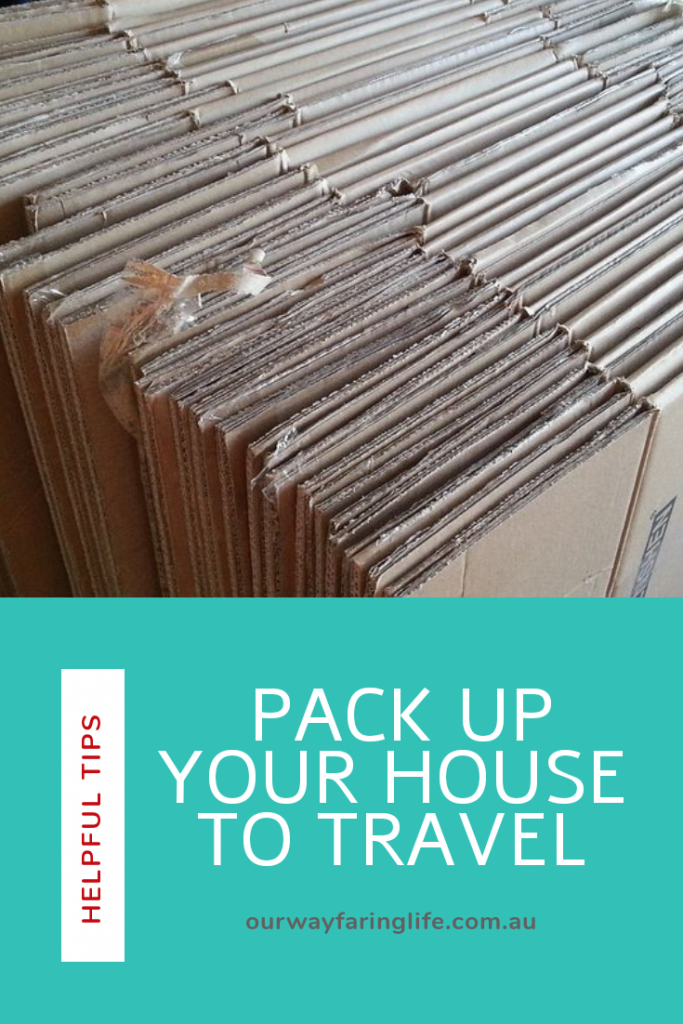Last updated on 5 April, 2021
Congratulations! The decision to take the plunge and travel for an extended period or with no end date has been made. You’re feeling excited and nervous about the adventures that await. Then reality hits and it dawns on you everything you will need to do before you can set off. Exploring destinations (this is the best bit), sorting out your finances, how you will fund your trip, possibly you have a house to sell or tenant and then there is the mammoth task of packing up your house to travel and deciding what is the best long term storage option for your belongings.
Below is your comprehensive guide with steps and tips to help you tackle the task of packing up your home and deciding on the best storage option for your household items while you are away.

- Packing Up Your House To Travel | Where To Start?
- Tips For Packing Up Your House
- Packing | Belongings To Be Kept
- What To Do With items You Don't Want?
- When Packing Up Your House Is Done!
- More Trip Planning
- PIN It!
Packing Up Your House To Travel | Where To Start?
Acknowledge The Size Of The Task To Be Undertaken
The task of sorting and packing up everything you own is not simple or quick task, actually it is very much the opposite and can feel overwhelming and daunting. The best thing to do is acknowledged how you feel and know that there are ways to deal with your emotions at this time. Also know that with some planning, action and time, eventually, bit by bit the task of packing up your house can be achieved. Our tips will also help you.
As someone who has moved house and packed up to travel I am here to tell you the two have similarities but also distinct differences. The biggest difference is trying to balance living day to day in your home until your departure and all the time packing up as well. Is it a whole lot of deciding things you never knew were things to decide like when is the best time to box or give away the toaster? How long should everyone be sitting on camp chairs because the lounge needs to be sold for the travel fund? It is a balancing act and it can be incredibly stressful.
Biggest Decision | Keep Or Discard A Household Of Belongings?
By far the biggest and most important decision to make is – will you keep most of your household belongings and put them into storage or will you get rid of as much as you can and only holding on to a few sentimental and irreplaceable items like your family photos?
There are a few things to consider that can help when making this decision:
- How long you are travelling for verses the hassle of refurnishing a house. If your plans are to take leave from work for a year and return then it may make more sense to put the bulk of what you own into storage. Alternatively if (like us) you have no plans to stop travelling or to return to your current home then maybe letting everything go and starting new down the track is a better option.
- The replacement value of your belongings compared to the storage facility costs. Long term storage costs maybe be cost effective for a year but not for multiple years.
- Keeping your belongings gives you a sense of security verses getting rid of your stuff gives you a sense of freedom and not being held to anything. Which is it for you?
The answers to the above questions can help you decide what is the best decision in your circumstances. Take your time answering them, this is a big decision.
Start As Soon as Possible
Once you have decided if your plan is to keep or get rid of the bulk of your belongings start. It is a process that is time consuming which takes longer than you think. Start as soon as possible as leaving it will only add to your stress.
Starting just has to be one drawer, a cupboard, a section of the garage. It doesn’t matter where you start it just matters that you do.

Explore Your Storage Options
Generally the options available to most of us for storing our belongings while we travel are:
- Paid long term storage unit
- Storage space on our property such as shed, garage or shipping container
- Storage space on a family or friend’s property such as a shed, garage or shipping container
Each option has its pros and cons to be considered:
- Using a paid self storage facility often provides the most secure option with 24/7 surveillance (if this isn’t provided go elsewhere), access is usually 24/7 and options for insurance will be available. However it can quickly become costly especially when storing belongings for years.
- Utilising space on your own property can be the most cost effective (free), can be made secure and it is possible to get content insurance. However if you are going to rent out your property to tenants they will need to know there is a space not accessible to them and if at any time you want to get access to your belongings it will have to be done in negotiation with your tenants.
- Utilising space at a family or friend’s property can also be cost effective. However something to consider especially when storing items long term is that family and friend’s may one day want their space back or they may develop feelings of irritation about having your stuff around for a long time. Also it may be more difficult to get insurance for contents stored on a property where you do not live.
Source Boxes and Create A Packing Space
Tell and ask everyone you know you need boxes. Whether you are keeping or getting rid of most of your belongings, you are going to need boxes. The other option is to buy moving boxes or an alternative long term storage containers such as plastic boxes.
Packing up your home takes space. Space to sort through things, space to keep packing items like boxes, markers, paper and tape and space for packed boxes or containers. Decide where in your home is the best space. Somewhere it is practical and is going to cause the least inconvenience. A spare room is ideal otherwise try using an out of way section of a room like the far end of your dining room.

Tips For Packing Up Your House
Six and More Months Before Departure
Purge | Cull and Minimise
Preparing to move out of your house to travel is a prime time for purging. We all accumulate things over the years that we don’t use, love or need. A useful start six months or more before your departure date is go through your house getting rid of all the things that never get used or have been waiting to be discarded such as the juicer in the back of the kitchen cupboard, the old lawn mower that never got fixed or the left over renovation materials that have been sitting around waiting to go to the tip for years. Even if you are keeping most of your belongings it’s not worth paying or using up storage space for things you don’t want or need.
This is also the time to cull and minimise what you own. Reduce the amount of clothes, linen, DVDs, kitchen items, tools and so on that you. Continue to have what you need to function day to day in your life but without the excess.
Pack the first lot of boxes with your absolutely will be keeping but have no function such as your photo albums, your collection of keepsakes made for you by your children or grandchildren and so on.
Decide If You Love it? Is It Replaceable?
It can helpful to start looking at your belongings through the lens of “do I love it?” or “is it something that can’t be replaced or the cost of replacing would be more than the storage cost?” Unless the answer is a resounding yes to either of those questions then give serious thought to getting rid of it.
Ultimately what you are deciding is “do you love this item enough to pay the cost of long term storage and will be excited to unpack it one day in the future?”
My tip is tart with items you:
- Definitely want to keep like your photos; and
- Definitely do not want to keep like the Jane Austen books given to you as a gift (surely it can’t be just me that dislikes J.A books.)
Try to be as ruthless as you can. Remember what is left will still need to be sorted and packed or discarded later.
Two to Four Months Before Departure
Reduce | More Culling and Minimising
The objective now is to pack up or get rid of the majority of what you own. This is when you make do with the bare essentials needed to operate day to day until you leave on your adventure. It is things like:
- having one set of linen per bed
- one towel per person
- no toaster and using the grill instead
- one plate, one bowl and one set of cutlery per person
- no baking items (who has time to bake now?)
- no decorative items on display
- only necessary funiture and furnishings especially so if selling or donating things like the dining set, the buffet etc.
- a few select favourite toys for the children
At this time you should be seeing:
- Empty shelves
- Empty drawers
- Empty cupboards
- Empty walls where pictures and photos used to hang
- Empty floor space where furniture used to be
Personally I found this to be the most exciting time as it made the entire process seem real. It was also liberating learning how little we could survive with and how freeing it was not to have so much stuff to look after.
Tape Up Boxes or Get Rid Of Items ASAP
Pretty much the most frustrating thing to happen in this entire process to find things you have boxed for storage or to go, being unpacked with the help of a spouse or child. Having to re-sort or re-box something is frustrating! So my tips are:
- As soon as a box is packed – label it and tape it shut
- Put items to be sold out of general view
- Take items to be donated to the opportunity shop as soon as possible
Decide And Finalise Your Storage Option
By now you should have done any of the following that you consider to be a storage option for you:
- Gotten quotes on storage unit prices.
- Found out how much it will cost to purchase a shipping container and have it transported to where it will be located.
- Had conversations with friends and relatives about any space they have available.
- Made sure any potential storage space on your own property is up to the task.
Now it is time to decide what option you will use and start with the necessary arrangements. Book in your storage unit, will you need to do anything to clean out or prepare the space at friend, family or on your own property? Purchase the shipping container and make sure it can be delivered in a timely manner.
Non of this you want to leave too long.
One Month Before Departure
The End Is Near | Persevere
This final month, after months and months of sorting, packing and getting rid of stuff can feel like a drag. Along the way excitement and anticipation for the travelling adventures that await you have grown and yet there is still stuff in your home to deal with. As someone who has done it, I can empathise. Be patient with yourself and the tasks that remain. There will be an end.
Final Riddance
By now you have adapted to living and functioning with very minimal items but soon enough in the last month this stuff has to go.
It is also the time for getting rid of the last of any rubbish you have. By clearing up around and in our house we had a few trailer loads that went to our local waste facility.
Consider Moving Out Of Your Home
Moving out of your home especially in the final few days can be useful and potentially reduce everyone’s stress levels. Consider moving into your caravan or camper trailer in your yard or staying in a motel or with friends or family.
An indicator it maybe time is when everyone’s mattresses have to moved into storage or discarded. Obviously everyone needs somewhere to sleep.
Move Items Into Storage
Storage unit prices or availability of storage space at your home or at a friend or family’s place are likely to determine exactly when you move your belongings into storage. Try to give yourself at least a few days to a week.
Plan and organise how you are going to move everything into storage. This is essential if you are needing to move large bits of furniture and need to hire a trailer or truck to do the job.

Packing | Belongings To Be Kept
Enviably pretty much everyone ends up having possessions that need to be stored, some more than others. Regardless how much stuff you are putting into storage it is essential they are given the best chance of surviving remembering of course they could be in storage for a number of years.
How to store household items long term:
- Make sure the storage space is weather tight.
- Use furniture storage covers – old bedding will do.
- Label the top and side of each and every box.
- Pack like items together and don’t mix things up – linen in one box, toys in another, kitchen items in yet another and so on.
- Do not make boxes too heavy.
- Put heavy items in the bottom of boxes, lighter things on the top.
- Use plastic boxes for items vulnerable to mould and the damp such as clothing and other material goods.
- Store boxes off the ground if you can with the heavier boxes on the bottom, lighter boxes on the top.
- Put collections of small items like Lego, cutlery and jewellery into draw string bags before placing into a box.
- Wrap up fragile items in paper and do not leave any space inside the box for the items to move around. Use scrunched up balls of paper if required.
- When disassembling furniture put all screws etc into a plastic bag and tape it to a main part.
- Tape all cables and leads to the electrical item it belongs to.
- Do not store items with expiry dates or liquids such as shampoos.
- Ask someone you trust to look after anything of significant sentimental or monetary value. For example I have a Dr Seuss painting which is hanging on my sister in laws wall where it can be enjoyed and I also know it won’t get damaged.
- Consider pest control especially if storing in garage or other space on your own or family or friends property. Doing what you can to keep away vermin and pests will aid in keeping your belongings safer.
What To Do With items You Don’t Want?
Sell Them
Why not make some cash to go towards your travel funds?
- Have a garage or yard sale
- List items on classifieds on the internet including Facebook market place or Gumtree
Start selling your stuff sooner rather than later. You’re more likely to get a better price for things when you are not trying to get rid of them last minute.
Also selling stuff is time consuming but for the right stuff can be well worth it. Some tips when selling online:
- Take good well lit photos and upload at least 3 photos from different angles
- Give a good honest description. Eg if a cupboard is missing a handle say so.
- Use online sell sites to do your research on what price you should aim for. Don’t go too high or you will have no interest. Don’t price too low or you will do yourself out of some cash.
- Use multiple sites to list but note in your description that this what you have done.
- Be flexible on what price you will accept. Remember some money is better than none.
- Set up your options for accepting payments. PayPal, bank deposit or cash on pick up are popular.
- Once you have a buyer communicate regularly until the deal is completed.
- Note that not all buyers are reliable for paying and or collecting their purchase. Be a little patient especially if they communicate with you about the reason for any delays. Otherwise don’t be afraid to cancel a sale if needed.
We were able to make some decent money on things we sold. It definitely got harder to get good offers the closer it got to our departure date as it became more and more necessary to get of stuff. We basically gave away our second car because practically we needed it until just days before we left and had to take the first low ball offer we got.
Donate Or Give Away
By donating or giving items away you prevent things going to land fill and you can feel good about being charitable and helping others out.
- Give things to family and friends
- Donate to charities
- Pass items onto others for free who can use them. In the Blue Mountains where we lived is a fantastic group Pay It Forward run by community members where things are given away for free. We used this group to get rid of a lot of our things. Try to find a similar group in your area. You will be surprised what people will take off your hands. These are also a great way to score free packing boxes.
- Put items out on your front lawn with a free sign on it.
Like when selling start giving away items sooner rather than later. The process of giving and donating stuff is also time consuming plus if you don’t want it why not get rid of it quickly and reduce the clutter in your home?
Throw It Away
After all your best efforts to sell, give away and donate your unwanted belongings there are going to be things that are no use to anyone else and can only be considered rubbish. It is important to dispose of your rubbish responsibly:
- Use your household rubbish, recycling and green bins throughout the entire process of packing up your house.
- Use hard rubbish curb side clean ups provided by many councils.
- Contact scrap metal collectors.
- Take recyclable items like old electronics, DVD/CDs, printer cartridges to recycling stations.
- Cash in drink cans and bottles for money (if the scheme operates in your state).
- Use free chemical clean up days if offered at your local waste facility.
- Use your local waste facility for large items.
When Packing Up Your House Is Done!
Finally! it is done. Every possession you owned is either packed away in storage or has been gotten rid of. Sincerely, well done! Take a moment and acknowledge what you have achieved.
I will never forget the moment what had been our family home for over 10 years was 100% completely empty (except for our detached garage which is our storage space). It was 4 am on morning our departure day. Honestly after more than two years travelling we do not miss anything we sold, gave away or threw out. Instead we feel an incredible sense of freedom, no longer held to or down by stuff. To this day I still find it liberating to know how little we need to get by and be content with what we have.
Take note how you feel in the first days, weeks and months of your nomadic life. Do you start to miss your things or do you find yourself forgetting what you put in storage?
Happy travels and hopefully we will see you out there on the road one day.
More Trip Planning
PIN It!


